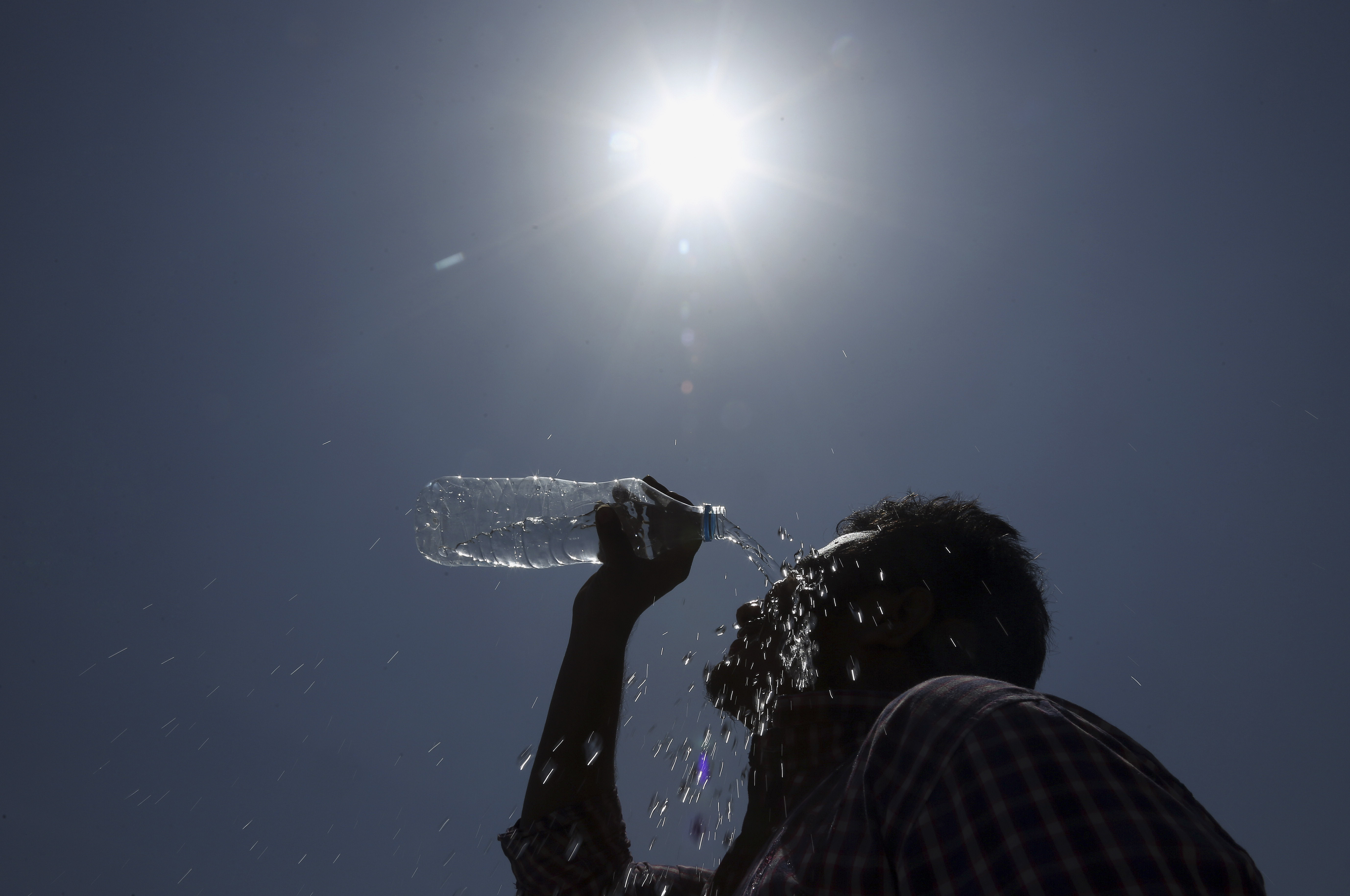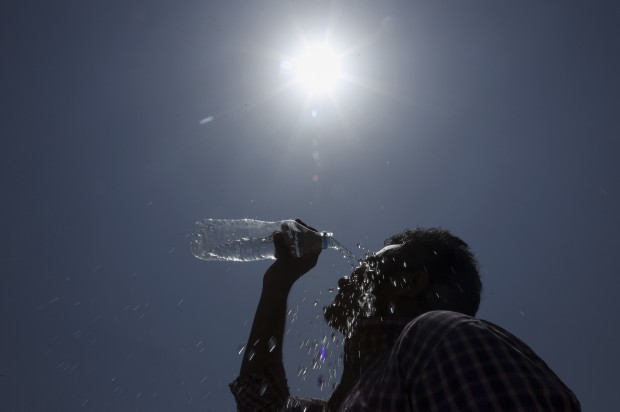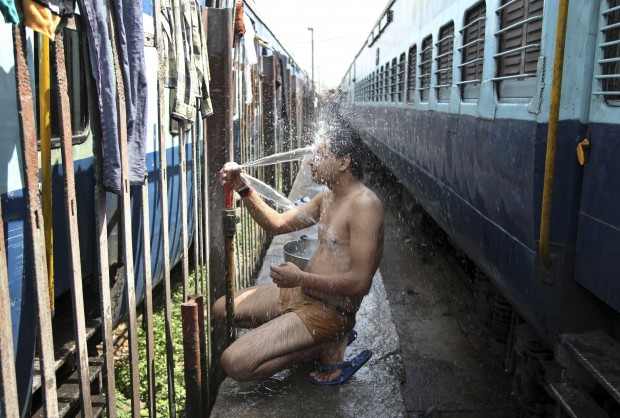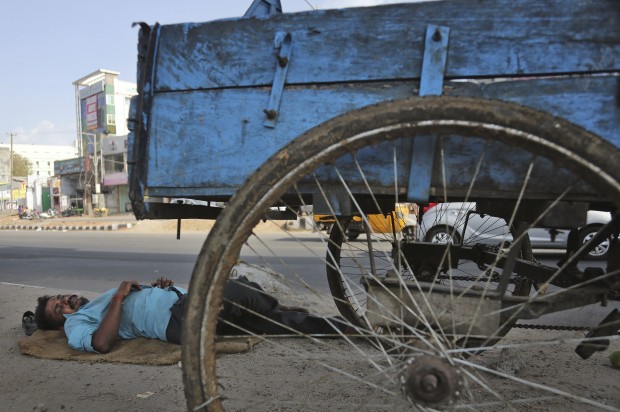
India heat wave kills 800, melts roads

At least 800 people have died because of the recent heat wave that has swept across India, as the temperature rise to near 50 degrees.
Hospitals were on high alert to treat the victims of heatstroke. While the authorities have advised people to stay indoors, the roads are seen melting and the stripes on zebra crossing curling in New Delhi.
In the worst-hit state of Andhra Pradesh, the temperature rose to 47 degrees Celsius on Monday, killing 551 people in the last week.
Special commissioner for disaster management in the state, P. Tulsi Rani said, “The state government has taken up education programs through television and other media to tell people not to venture into the outside without a cap, to drink water and other measures.”
She said that they have also requested NGOs and government organizations to open up water camps so the water is readily available.
On Monday, with the temperature hitting a two-year high at 45 degrees Celsius in New Delhi – 5 degrees above the seasonal average – there is fear of power outages (which rings true for large parts of India) as air conditioners work overtime.
In Orissa, 11 people died from the scorching heat. In Telangana state, which borders Andhra Pradesh in the south, 231 people have died in the last week as temperatures hit 48 degrees Celsius over the weekend. Another 13 died in the eastern state of West Bengal, urging drivers in the city of Kolkata to stay off the roads during the day.
Hundreds of people – mainly from the poverty-ridden locales – die at the height of summer every year across the country, while thousands suffer power cuts from an overburdened electricity grid.
India’s power industry has long struggled to meet rapidly rising demand in Asia’s third largest economy. While poorly maintained transmission lines and overloaded grids affect the daily routine; the hot, dry conditions could plunge some of the worst-affected states into drought before the monsoon rains arrive.
The monsoon is forecast to hit the southern state of Kerala towards the end of this month before sweeping across the country, but it will be weeks before the rains reach the arid northern plains.




